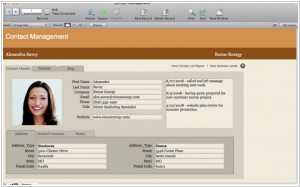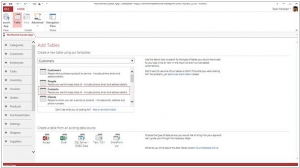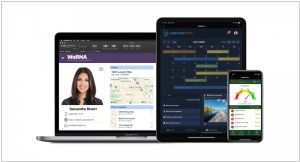FileMaker vs Microsoft Access
May 28, 2023 | Author: Michael Stromann
9

Award-winning business and personal database software for iPad, iPhone, Windows, Mac and the web. Streamline your business with the FileMaker Platform. Easily create custom solutions for iPad, iPhone, Windows, Mac and the web that meet the unique needs of your organization. Manage customer data, track assets, organize projects, run reports, and more. With the FileMaker Platform you'll be able to improve workflow, save money, and increase overall efficiency.
6

Access is now much more than a way to create desktop databases. It’s an easy-to-use tool for quickly creating browser-based database applications that help you run your business. Your data is automatically stored in a SQL database, so it’s more secure than ever, and you can easily share your applications with colleagues.
FileMaker and Microsoft Access are both popular desktop-based database management systems, but they have distinct differences. FileMaker is known for its user-friendly interface and ease of use, making it accessible to users with varying levels of technical expertise. It offers a visual development environment that allows users to create custom applications without extensive coding knowledge. FileMaker is platform-independent, available for both Mac and Windows, and provides flexible deployment options, including cloud hosting. On the other hand, Microsoft Access is tightly integrated with the Microsoft Office suite and is primarily designed for Windows users. It offers powerful data management features and advanced reporting capabilities, making it suitable for complex database applications.
See also: Top 10 Low-Code Platforms
See also: Top 10 Low-Code Platforms
FileMaker vs Microsoft Access in our news:
2020. FileMaker 19 allows low-code development using readily-available JavaScript libraries

Claris, a subsidiary of Apple, has introduced FileMaker 19, their inaugural open platform empowering developers to swiftly construct sophisticated custom applications. This latest release incorporates various advancements such as direct JavaScript integrations, drag-and-drop add-ons, AI capabilities through Apple's Core ML, and more. With FileMaker 19, developers can effortlessly create applications using plug-and-play add-ons, enabling the seamless assembly of robust apps in record time. Additionally, they can leverage JavaScript, web services, native FileMaker code, and other tools to develop shareable add-ons for sale on the Claris Marketplace. Moreover, the new version enables the creation of apps directly within the FileMaker Cloud, eliminating the complex configuration process and facilitating instant sharing of applications.


